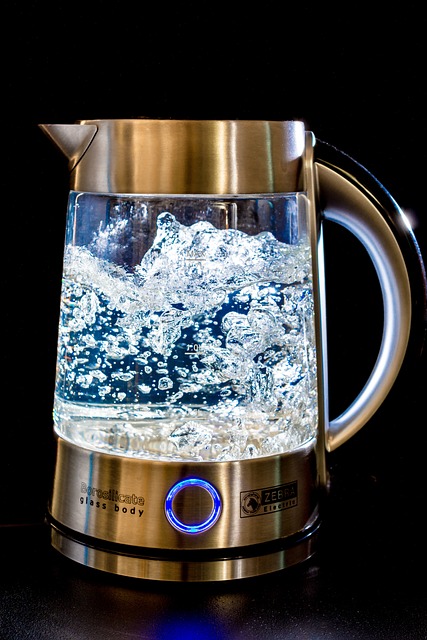Regular water heater maintenance is essential to prevent costly repairs, extend appliance lifespan, and ensure efficient performance. Key tasks include flushing sediment buildup, inspecting for corrosion, leaks, or moisture, cleaning or replacing the anode rod annually, adjusting temperature settings, and checking the pressure relief valve. Consistent upkeep saves money, prevents structural damage from leaks, and guarantees a reliable hot water supply.
Water heaters are often overlooked until they break down, leading to costly repairs. Understanding common water heater issues and their impact is the first step towards efficient maintenance. This article guides you through essential routine tasks to ensure optimal performance and longevity. Learn tips to prevent costly repairs, extend the lifespan of your heater, and stay ahead of potential problems using simple, effective water heater maintenance strategies.
- Understanding Water Heater Issues and Their Impact
- Routine Maintenance Tasks for Optimal Performance
- Tips for Preventing Costly Repairs and Extending Lifespan
Understanding Water Heater Issues and Their Impact

Water heaters are an essential part of modern living, but they can be prone to issues that lead to costly repairs if left unattended. Understanding common water heater problems and their potential impact is the first step in proactive maintenance. One of the most frequent issues is sediment buildup, which occurs when minerals and metals accumulate at the bottom of the tank over time. This not only reduces the efficiency of your water heater but can also cause it to overheat, leading to potential damage or failure.
Other common problems include faulty thermostats, damaged heating elements, and leaks in the tank or pipes. These issues can result in significant energy wastage, higher utility bills, and even structural damage if left unaddressed. Regular water heater maintenance, including flushing and cleaning to remove sediment, inspecting for any signs of wear and tear, and ensuring proper temperature settings, is crucial to preventing these problems from arising.
Routine Maintenance Tasks for Optimal Performance

Regular maintenance is key to preventing costly water heater repairs. Start by inspecting your water heater for any signs of corrosion, leaks, or moisture around the base. Cleaning or replacing the anode rod, which prevents rust build-up, is a common task that can significantly extend the life of your heater. Additionally, flushing the system annually removes mineral deposits and sediment buildup that can reduce efficiency and cause heating issues. Don’t forget to check the pressure relief valve for any debris or damage, ensuring it functions properly to prevent excessive pressure buildup. These routine water heater maintenance tasks not only save you money in the long run but also ensure optimal performance and reliable hot water supply.
Tips for Preventing Costly Repairs and Extending Lifespan

Regular water heater maintenance is a surefire way to prevent costly repairs and extend the lifespan of your appliance. One of the most effective tips is to ensure consistent cleaning. Over time, mineral deposits can build up inside the tank, reducing its efficiency and potentially leading to breakdowns. Schedule periodic cleaning sessions using specialized solutions or enlist the help of professionals who can safely and thoroughly clean the heater’s interior.
Additionally, keeping an eye on temperature settings is vital. Adjusting the thermostat to a slightly lower setting can significantly reduce energy consumption without compromising comfort. Regular inspection for leaks is another key practice. Even small drips can translate into substantial water waste and potential damage over time. Address any detected leaks promptly to avoid further complications.
Regular water heater maintenance is a crucial step in preventing costly repairs and extending the lifespan of your appliance. By performing simple routine tasks, such as flushing, inspecting for leaks, and setting optimal temperature settings, you can catch potential issues early on. This proactive approach ensures not only financial savings but also guarantees consistent hot water supply, keeping your home comfortable and efficient. Incorporating these maintenance practices into your annual checklist is an effective way to stay ahead of water heater problems.
